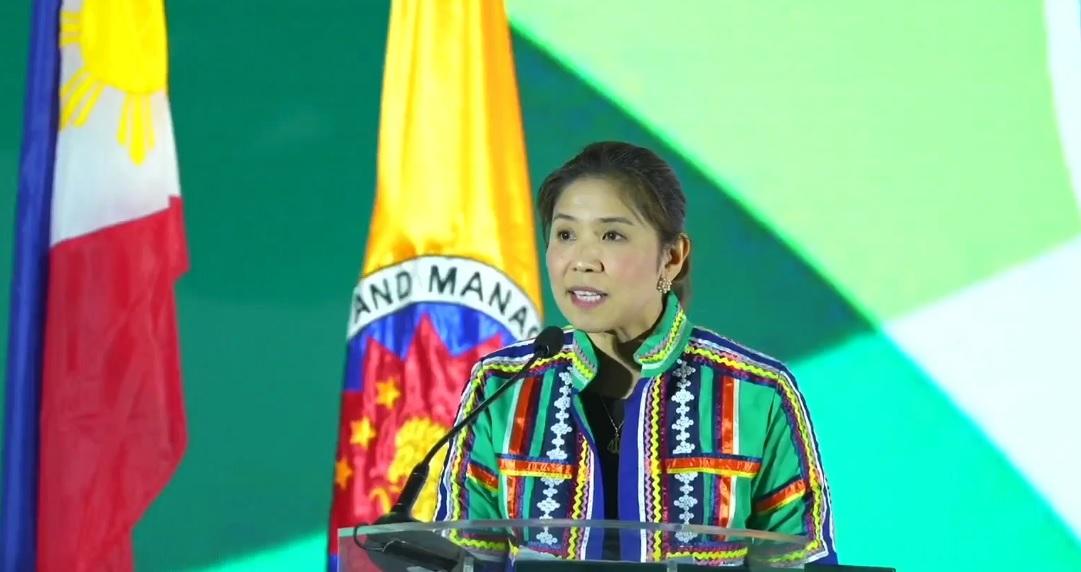Gov’t procurement of common-use items through ‘add-to-cart’ soon —DBM

Government offices’ purchase of common-use items will soon be as easy as using popular online shopping platforms, following the passage into law of the New Government Procurement Act (NGPA), the Department of Budget and Management (DBM) said Tuesday.
At the post-State of the Nation Address (SONA) forum in Pasay City, Budget Secretary Amenah Pangandaman described the NGPA as “the biggest anti-graft and corruption law in our modern history.”
On Saturday, President Ferdinand Marcos Jr. inked Republic Act 12009, which amended the 20-year old Government Procurement Reform Act.
“So, we're happy that the 20-year-old law is now amended and fully modernized – the process and the procurement system," the Budget chief said.
Pangandaman, during the post-SONA discussions, said that among the new law’s salient features was the use of alternative modes of procurement such as the creation of an “e-marketplace” for government’s purchase of common-use supplies and equipment (CSE) through the Procurement Service of the Department of Budget and Management (PS-DBM).
“We'll make use of modern technology. For common-use supplies, we will use systems and applications similar to Lazada and Shopee. So, it will just be ‘add to cart’ because we know that a lot of common-use supplies are unavailable in our Procurement Service, in our warehouses. But now, it will be online,” she said.
The e-marketplace is seen to transform the procurement of CSE by acting as the government’s main e-commerce platform.
The e-marketplace application will reduce the turnaround time to procure CSEs using technology.
Common-use items refer to equipment and office supplies used by government agencies for their day-to-day operations such as sheets of paper, computers, pens, pencils, staplers, folders, envelopes, among others.
Pangandaman earlier said that the DBM is “already finalizing the backend and the frontend” of the e-marketplace application.
“We will come up with separate rules and regulations for new alternatives, so maybe give it two months and maybe the e-marketplace will be up and running,” the Budget chief said.
Early procurement
During the forum, Pangandaman said that the NGPA allows early procurement activities, thus government agencies can implement their projects as early as the start of the year.
"The institutionalization of the early procurement method—previously, we don't have it. We just issued a circular on this. But now, it's already part of the law. Meaning, once we submit the National Expenditure Program, all the projects of my colleagues here [from different government agencies] can already be bid out," the Budget chief said.
"We will submit the National Expenditure Program on July 29. Meaning, after the submission to Congress and the Senate, they can already bid out their projects. And by January 1, they can already prepare their Notice of Award. So, by January 1, they can already implement their projects. I think that's important in terms of the implementation of their projects,” she added.
The Budget chief further said that through the NGPA, the procurement process will be more transparent by strengthening citizen’s participation.
This allows members of civil society to participate as observers in the process.
Another provision of the law also seeks to prevent conflict of interest in the procurement process through disclosure of relations between the bidder and procuring heads of agencies. This means that competent and credible suppliers can participate in the platform with ease as the e-marketplace has clear safeguards.
Moreover, one of the key provisions of the NGPA determines the “most economically advantageous responsive bid” (MEARB).
This contrasts with RA 9184’s “lowest calculated and responsive bid” which sometimes ends up with the government getting the cheapest items but with the lowest quality.
This new award criterion will free agencies from the obligation of selecting the lowest-priced bid, allowing them to choose the best deals for the Filipino people.
“We introduced a new or alternative mode of procurement. It's not just the low cost, but we will also consider the quality of the goods and services that we need in the national government," Pangandaman said.
The new law also advocates environmentally friendly methods whereby procuring entities seek to procure goods, infrastructure projects, and consulting services with reduced environmental impact through their lifecycle.
The green procurement approach will enable the acquisition of technology, solutions, and services with the lowest life-cycle costs by picking the offer that provides the best energy efficiency and overall quality.
This is also in support of the country’s commitment to accelerate climate change action and strengthen disaster resilience. — BM, GMA Integrated News




